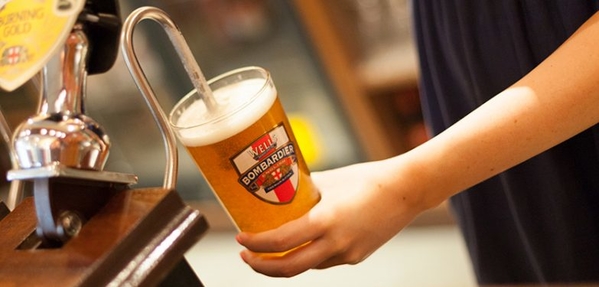Who will be next for the axe after Wells?
Added: Monday, May 22nd 2017

The sale of the Charles Wells’ Bedford brewery and brands to Marston’s for £55 million brought to mind the occasion some years ago when, at a brewers’ event, I sat with member of the family that owned the George Gale brewery in Hampshire. When I bemoaned the closure of Morrells’ brewery in Oxford, the chairman of Gales laughed and said: “There goes another one!”
Another member of the family told me her only interest in the brewery was her twice-yearly dividend cheque. It came as no great surprise when, a year or two later, the Gale family sold the business to Fuller’s.
I’m not suggesting the Wells family was motivated solely by the size of the Marston’s cheque. As the author of the Charles Wells official history, I got to know the family well, chairman Paul Wells in particular, and they are decent and honourable people committed to their beers and pubs.
But I suspect they felt – as many other long-established brewers do – that it was better to retreat to the comfort zone of running pubs. In a fast-changing beer world, family brewers feel crushed between the national brewers and the growing army of craft beer makers.
Belinda Sutton, née Elgood, managing director of Elgood’s in Wisbech, told me in an interview that she was under intense pressure from Adnams and Greene King along with a number of new micro-breweries in the Fenland region. Elgood’s qualifies for Progressive Beer Duty: family brewers who don’t benefit from duty relief are really under the cosh.
But when family brewers complain about falling sales and unfair competition, are they not victims of their own failure to fashion beers that today’s drinkers want to consume?
Many of the family brewers have been slow to innovate. In March this year, Timothy Taylor in Keighley launched its first-ever golden ale, Knowle Spring. Where have they been? Golden ales have been a popular style for around 20 years.
Both Charles Wells and Shepherd Neame also clambered belatedly on to the golden ale bandwagon with gold versions of Bombardier and Spitfire. I feel it’s all a bit too late. The buzz beers of the moment aren’t golden ales but IPAs, saisons and sours. Even when traditional brewers introduce such styles as IPA, they are often too timid and produce beers lacking the strength and hop count of the true version.
I absolve Fuller’s from this criticism. Their Bengal Lancer is an excellent IPA and they have also promoted their vintage ales with great success. Elgood’s, too, have done well with Cool Ship, a Belgian lambic-style beer made by spontaneous fermentation. Head brewer Alan Pateman brought back into use open fermenting pans that enable wild yeasts in the atmosphere to transform malt sugars into alcohol. Mention wild yeasts to most traditional brewers and they will have a fit of the vapours.
The remaining family brewers need to adopt a simple mantra: Innovate or Die. If more of them give up the ghost, they will hand terrifying power to the national brewers.
The Charles Wells sale will give Marston’s the Bombardier, Courage, McEwan’s and Young’s brands. Marston’s now accounts for Pedigree and its other Burton-brewed beers, along with Banks’s, Brakspear, Jennings, Ringwood, Thwaites and Wychwood.
Greene King owns and brews its own beers, including the best-selling IPA and Abbot Ale, plus Belhaven, Hardys & Hansons, Morland, Ridley and Ruddles. Molson Coors has turned the small Sharp’s Brewery in Cornwall into a 200,000 barrels-a-year goliath.
Cask Marque tells me that when you add together the output of Greene King (300,000 barrels a year), Marston’s (350,000) and Molson Coors (250,000), these three breweries account for 37 per cent of the cask sector.
That is a worrying level of domination and it is also bad for beer lovers. Beers change along with ownership. Different malts, hops and yeast strains will fundamentally alter the taste and character of beers.
Does anyone seriously believe the Old Speckled Hen brewed by Greene King has more than a passing resemblance to the beer once made by Morland in Abingdon? Those of you old enough to recall Ruddles of Rutland will know the Ruddles Bitter of today is nothing like the beer that was one of the most popular brands during the real ale revolution of the early 1970s.
Beers lose more than their original character. They also lose provenance. Perhaps, late in the day, we need a beer equivalent of the French appellation controlée for wine to safeguard cherished beer styles. If Young’s Ordinary and Courage Best had appellations, these much-loved London beers wouldn’t be brewed in Bedford or wherever else they may end up.
After Charles Wells, who is next for the chop? In many ways, the family brewers have only themselves to blame for their decline. Their future is in their hands. Innovate or Die.





